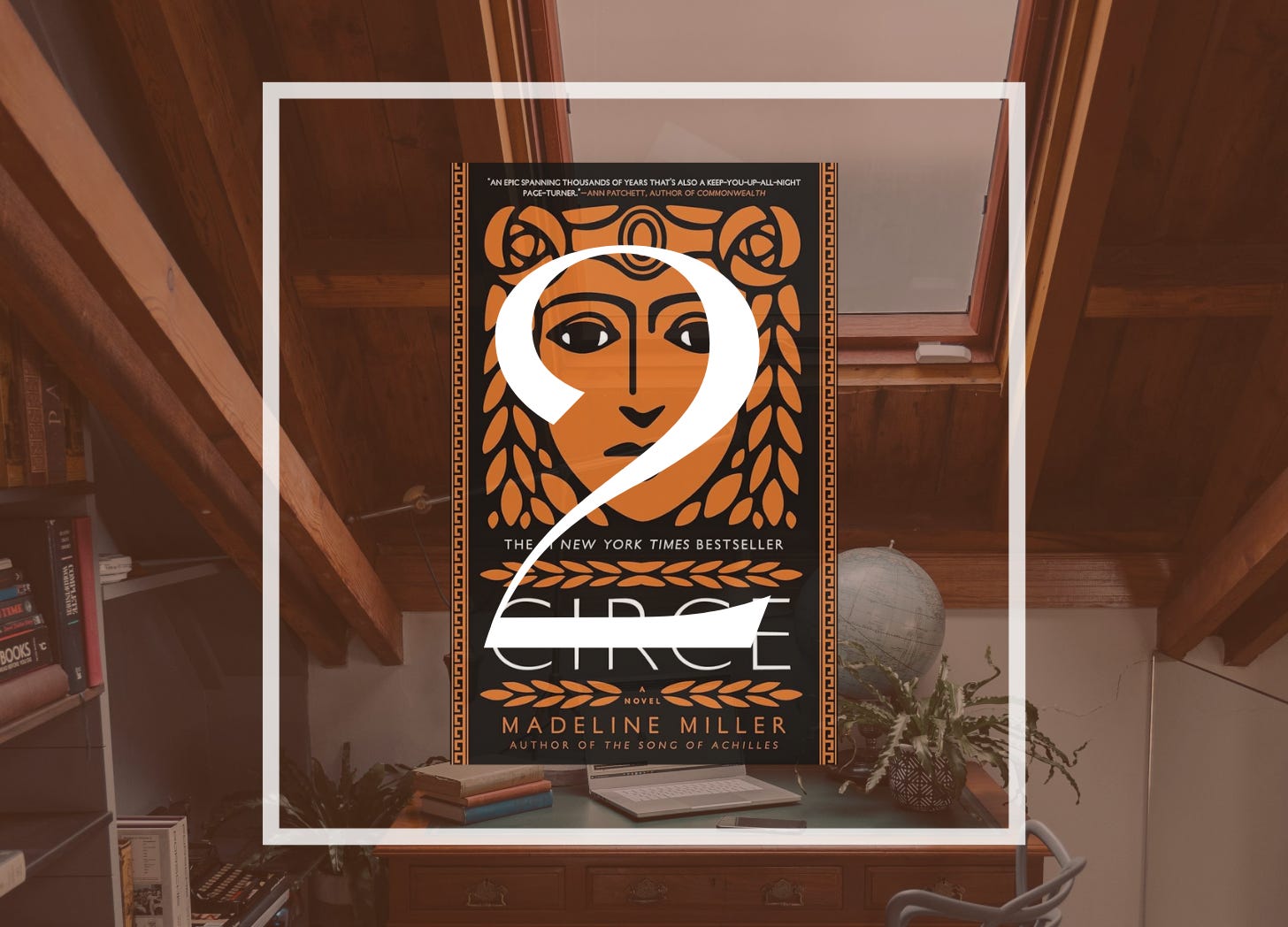In a previous post about Madeleine Miller’s Circe, we saw that a plot twist is satisfying when it accomplishes three things:
Elevates plot.
Reveals character.
Enhances theme.
We saw how a twist early in the novel proved deficiencies in Circe’s character and illustrated the theme of powerlessness against fate. Now, we’ll look at how a second twist in the story brings another layer of depth to Circe’s character and to the novel’s themes.
Let’s take a look at a surprising turn in Chapter 20 of Circe, and then let’s analyze a plot twist that follows in Chapter 21. HUGE SPOILERS ahead for the entire book!
The Turn
In Chapter 20, Circe visits the sea creature Trygon in hopes of claiming his poisonous tail as a weapon for her son Telegonus. Telegonus has long wanted to meet his father, Odysseus, and Circe has finally gathered the courage to let her son venture out from their island to face the dangers of the world. But she plans to ensure his safety by procuring Trygon’s stinger, which will kill any mortal and give everlasting pain to any god.
The scene between Circe and Trygon is one of the most intense I’ve ever read. I listened to it on audiobook while I was walking on a trail, and I’m sure my fellow trail-goers must have been a little alarmed by the tears streaming down my face. Trygon will only allow Circe to take his stinger for her son if she will first experience the terrible pain of the stinger’s poison. Circe agrees. Her selflessness is a shocking contrast to the petty nature of other nymphs and gods. More than that, her love for her son, and her desperation to keep him safe, is deeply moving. Hence my trail-sobbing.
Trygon tells her that she has passed his test—he gives her the stinger without requiring her to experience its pain. This outcome is deeply satisfying, but Trygon’s benevolent trick sets up the reader for a future reversal that will be devastating.
The Twist
In Chapter 21, Telegonus returns from his journey to meet his father. Immediately, Circe senses something has gone terribly wrong. Telegonus tells her his story: he did indeed meet his father, but Odysseus took him for an intruder and lunged for his stinger-spear. The sheath slipped from the spear…
And the stinger instantly killed Odysseus.
How The Twist Elevates The Plot
In going to such great lengths to keep her son safe, Circe has unwittingly orchestrated the death of her former lover and her son’s father, at her son’s own hand. The outcome here is exactly opposite to that of Trygon’s test in Chapter 20. In that chapter, Circe’s devotion to her son led her to the reward of his garunteed safety. Readers are delighted by the surprise that Circe will be spared from the stinger’s pain.
But now we see that pain will not be so easily escaped. Oddyseus’ death brings grief to Circe, but also to Telegonus. In bypassing the stinger’s pain, Circe has unwittingly passed that pain onto her son.
How The Twist Reveals Circe’s Character
Where Circe used to be naive and powerless, doomed to exile and uncertain in her magical skills, she shows courageous resourcefulness during Trygon’s test. Her role as a mother lends her the purpose and strength that her uneven romantic experiences never did. Her virtues are rewarded with Trygon’s stinger.
But the twist in the next chapter challenges Circe’s growth. Her hard-won virtues are all negated. The twist proves she is still naive to the aggression that rules her world. She can’t protect her son from attack because she can’t excuse him from the role of the aggressor, even against his own father.
The realization that her power can’t be used solely for good will later lead her to the decision to give up her immortality altogether.
How The Twist Enhances The Book’s Themes
The twist proves once again that even the most powerful are powerless against fate, a central theme in the book. But this plot twist, and the one I highlighted in a previous post, also show that part of the reason Circe can’t control fate is that she can’t stop the force of selfishness. Even when she commits an act of utter selflessness in Trygon’s test, it’s negated by Odysseus’s territorial aggression, just as her generosity toward her previous lover, Glaucos, was negated by his thirst for glory.
In the end, only the act of emptying herself of glory and power will complete Circe’s plot and character arc, and uphold the story’s themes.
Your Turn
If you’re planning a plot twist in your own story, try asking yourself these questions:
How might a turn in the plot give my character confidence that will set her up for disaster?
How might my twist show how my character has changed, or that my character’s growth is still incomplete?
How might my twist provide a new way of looking at a theme my story has already started to explore?






